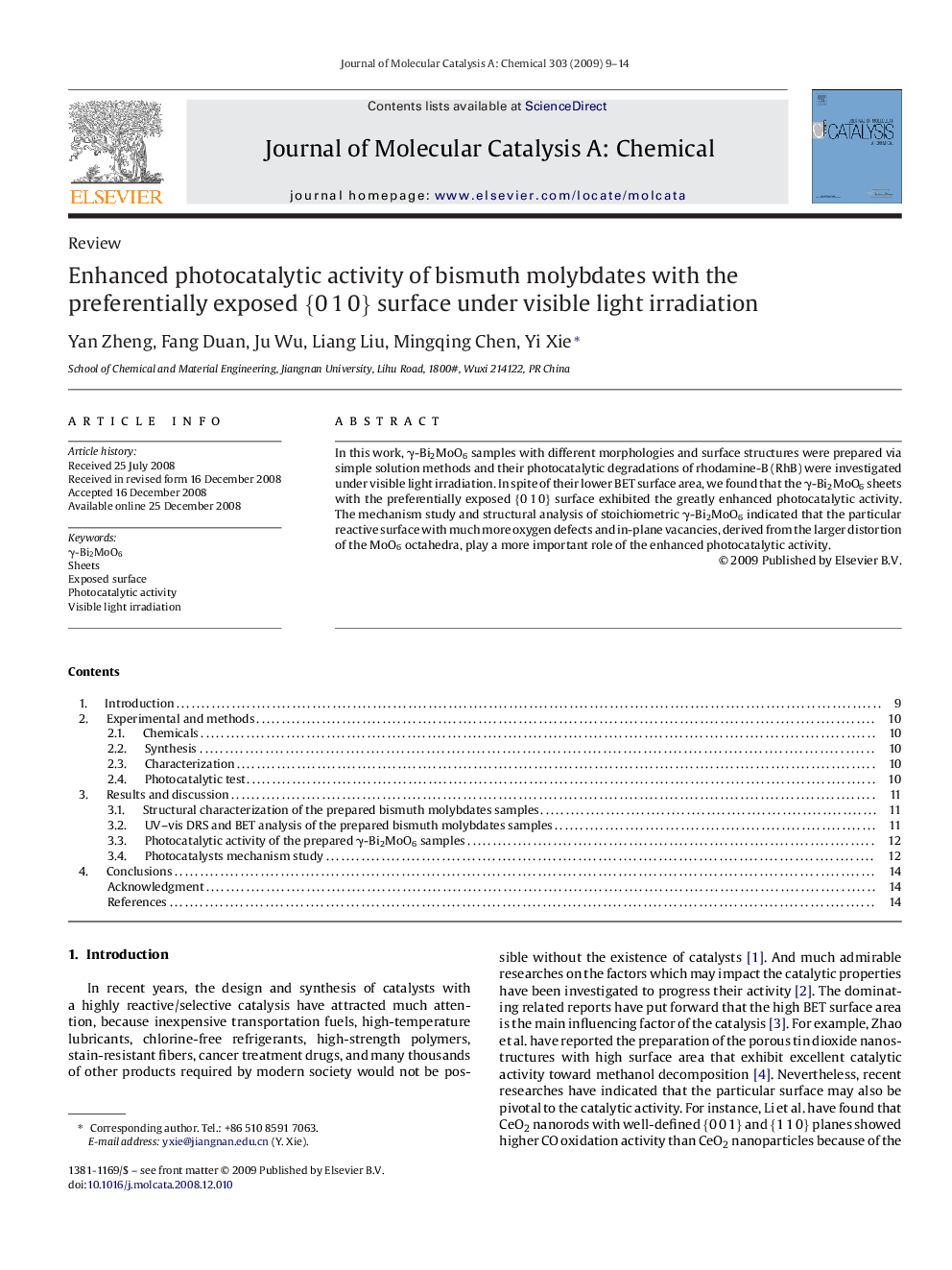| Article ID | Journal | Published Year | Pages | File Type |
|---|---|---|---|---|
| 67112 | Journal of Molecular Catalysis A: Chemical | 2009 | 6 Pages |
In this work, γ-Bi2MoO6 samples with different morphologies and surface structures were prepared via simple solution methods and their photocatalytic degradations of rhodamine-B (RhB) were investigated under visible light irradiation. In spite of their lower BET surface area, we found that the γ-Bi2MoO6 sheets with the preferentially exposed {0 1 0} surface exhibited the greatly enhanced photocatalytic activity. The mechanism study and structural analysis of stoichiometric γ-Bi2MoO6 indicated that the particular reactive surface with much more oxygen defects and in-plane vacancies, derived from the larger distortion of the MoO6 octahedra, play a more important role of the enhanced photocatalytic activity.
Graphical abstractFrom the structure of the stoichiometric bismuth molybdates (0 1 0) surface, the larger sheets sample with the preferentially exposed {0 1 0} surface of the largely distorted Mo–O octahedra supply more oxygen defects and in-plane vacancies, which enhances the concentration of OH and/or OOH radicals and thus greatly improves the photocatalytic property of γ-Bi2MoO6.Figure optionsDownload full-size imageDownload as PowerPoint slide
